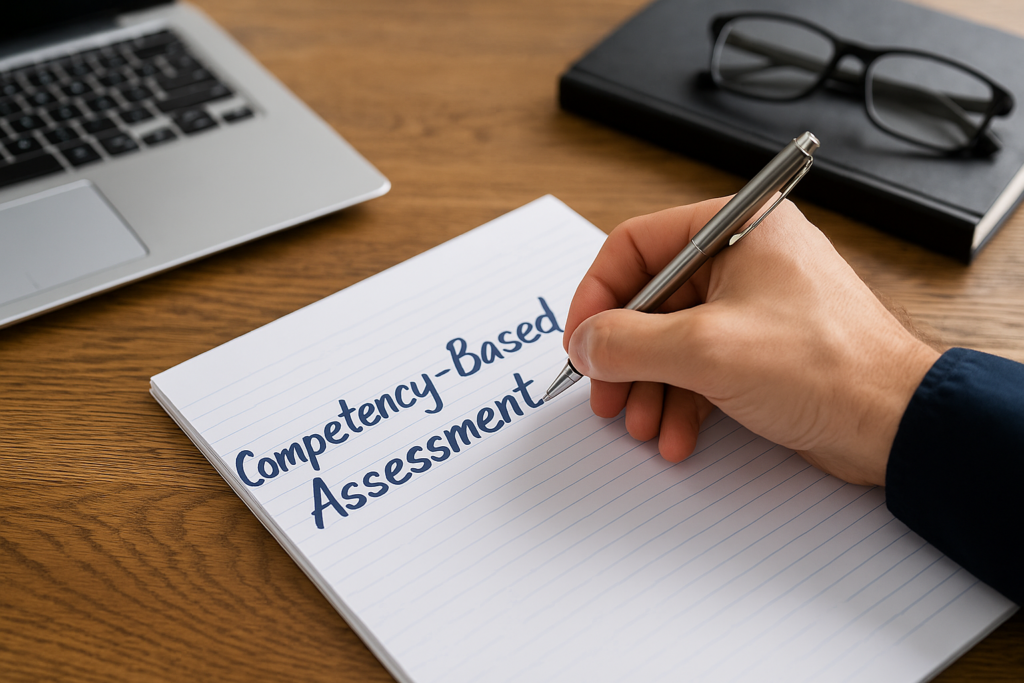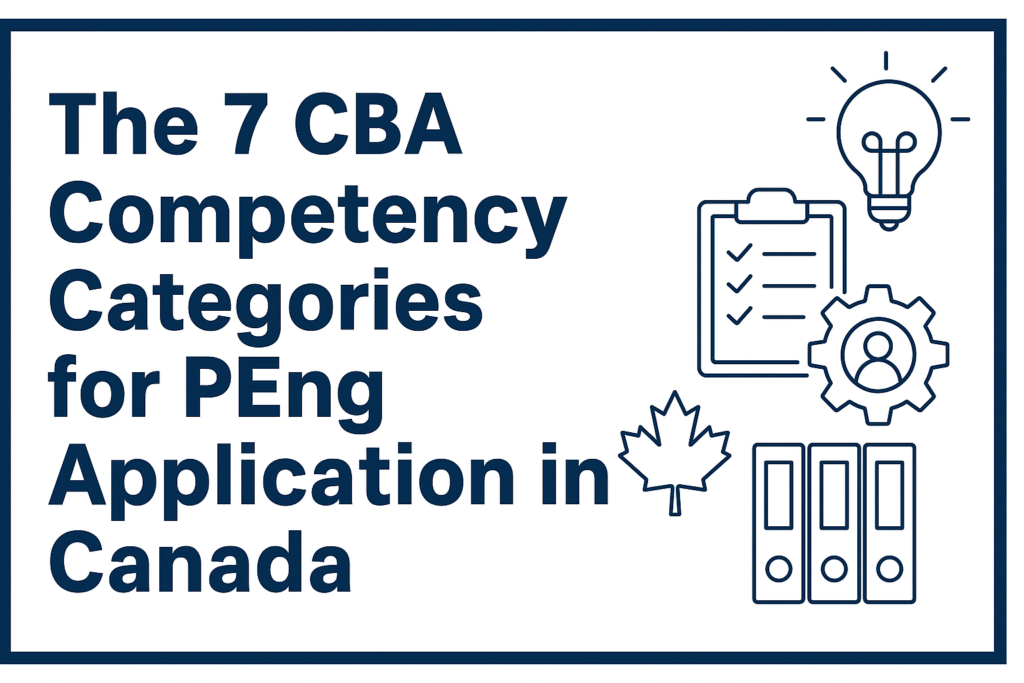CBA Pro: Your Professional Assistant to P.Eng. Success
Navigate your CBA & NPPE Success with Confidence
- CBA Pro Productivity Tool
- Review by P.Eng. & Consulting Sessions
- NPPE Preparation
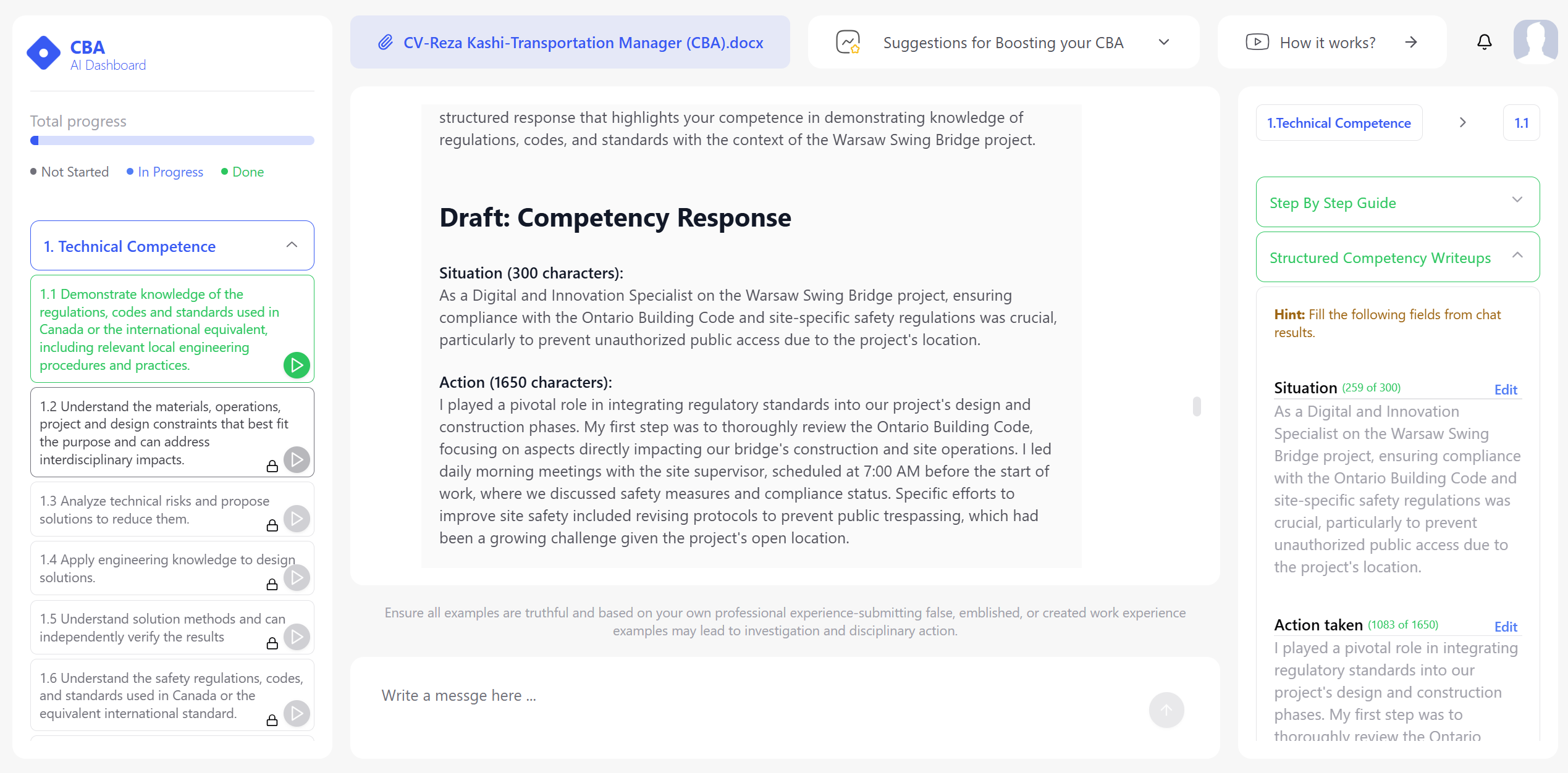
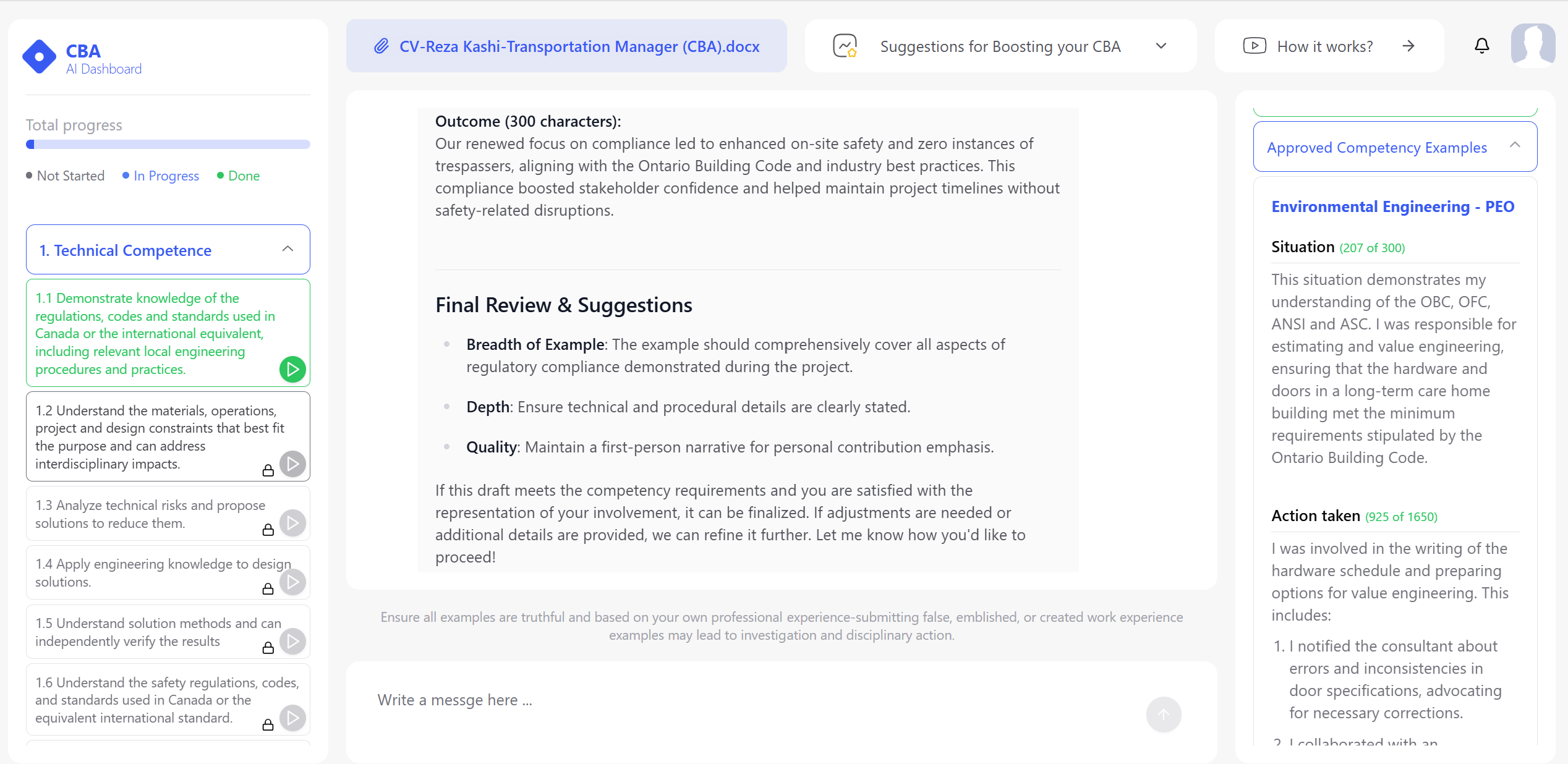
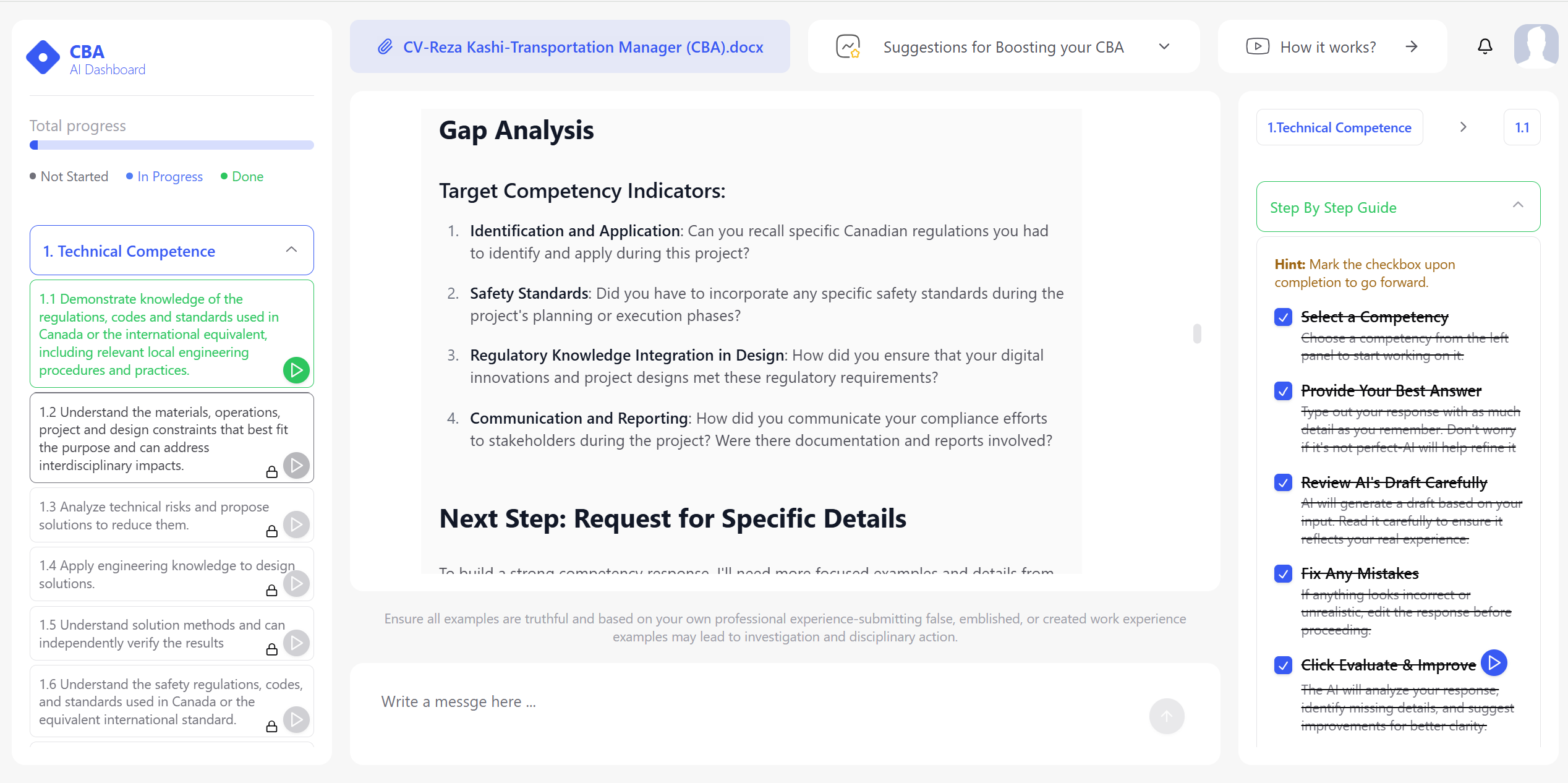
Save Time, Reduce Stress, and Get Your P.Eng. Faster with CBA Pro
Writing your Competency-Based Assessment (CBA) can be overwhelming and time-consuming. CBA Pro CBA Pro simplifies it, helping you structure, refine, and submit with confidence.

Simplify Your CBA Submission & Avoid Rewrites
Get Licensed Faster & Confidently
Our studies show it takes up to 360 hours to complete CBA with no help! With our support, you save over 146 hours while ensuring quality and compliance.
Many applicants struggle with understanding requirements and writing properly. We help you structure, refine, and align your CBA submission for approval.
You're not alone in your PEng journey! Get personalized guidance, and expert reviews by licensed professionals to maximize your success.
Applicants Who Used CBA Pro to Save Time and Reduce Stress
You Could Be the Next to Share Your Success Story with CBA Pro!
What You Gain with CBA Pro
- Peace of Mind – No Guesswork!
- Memory-Triggering Guidance – Get Personalized Prompts
- Save 146+ Hours – Avoid Frustration and Endless Rewrites
- Self-Assessment Assistant - Get Instant Feedback on Your CBA
- Maximize Your Time & Earnings - More Time for What Matters!
- PEng Review Before Submission
- Reduce Rejection Chances on the First Try and Avoid Delays
- Consulting Sessions At Your Will
- 24/7 Assistance Alongside Your Way!
- NPPE Exam Prep Sample Questions
About Us
Powered by CertNova, a trusted software solution vendor for Professional Engineers
A team with Engineering Background and passion for technology.
Our team is made up of experienced IT technologists, entrepreneurs, and former PEng applicants who understand the challenges of the licensure process firsthand. We've walked the same path, faced the same hurdles, and developed this platform to make it easier for others. Combining our technical expertise and personal experience, we’ve built tools designed to simplify the Competency Based Assessment (CBA). Our mission is to provide you with the resources and support we wish we had when we were in your shoes, helping you confidently navigate your journey to becoming a licensed engineer.

